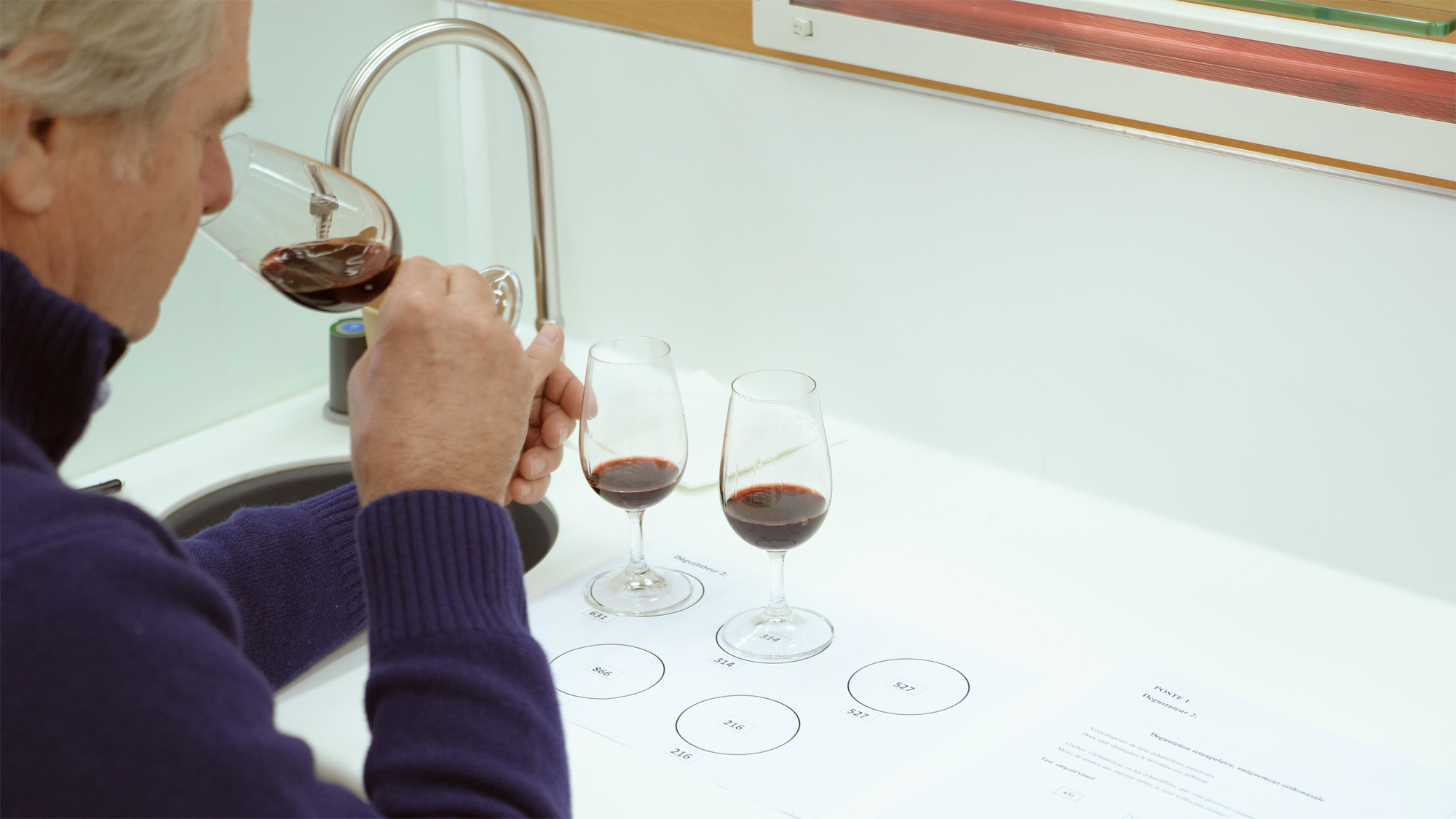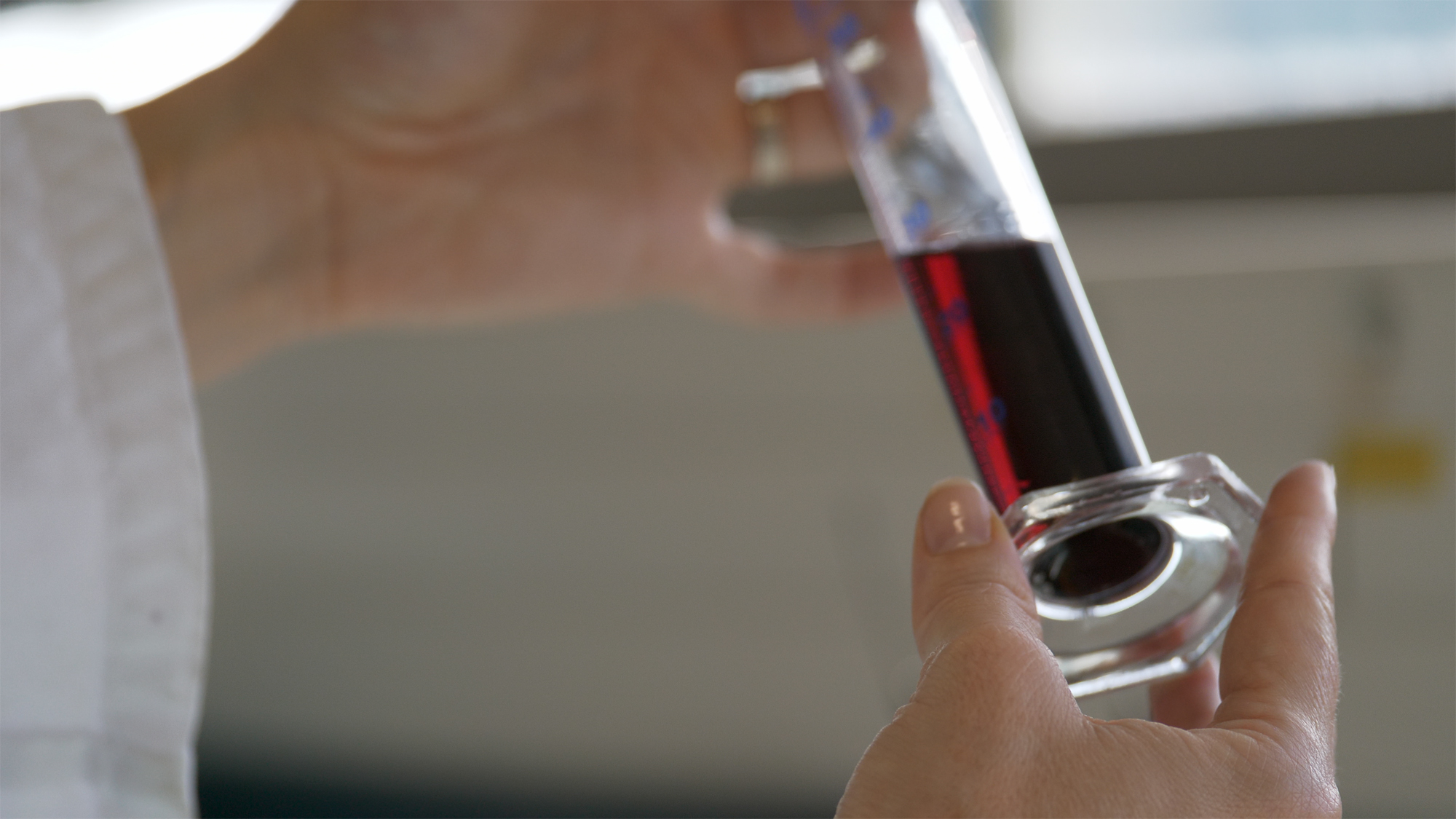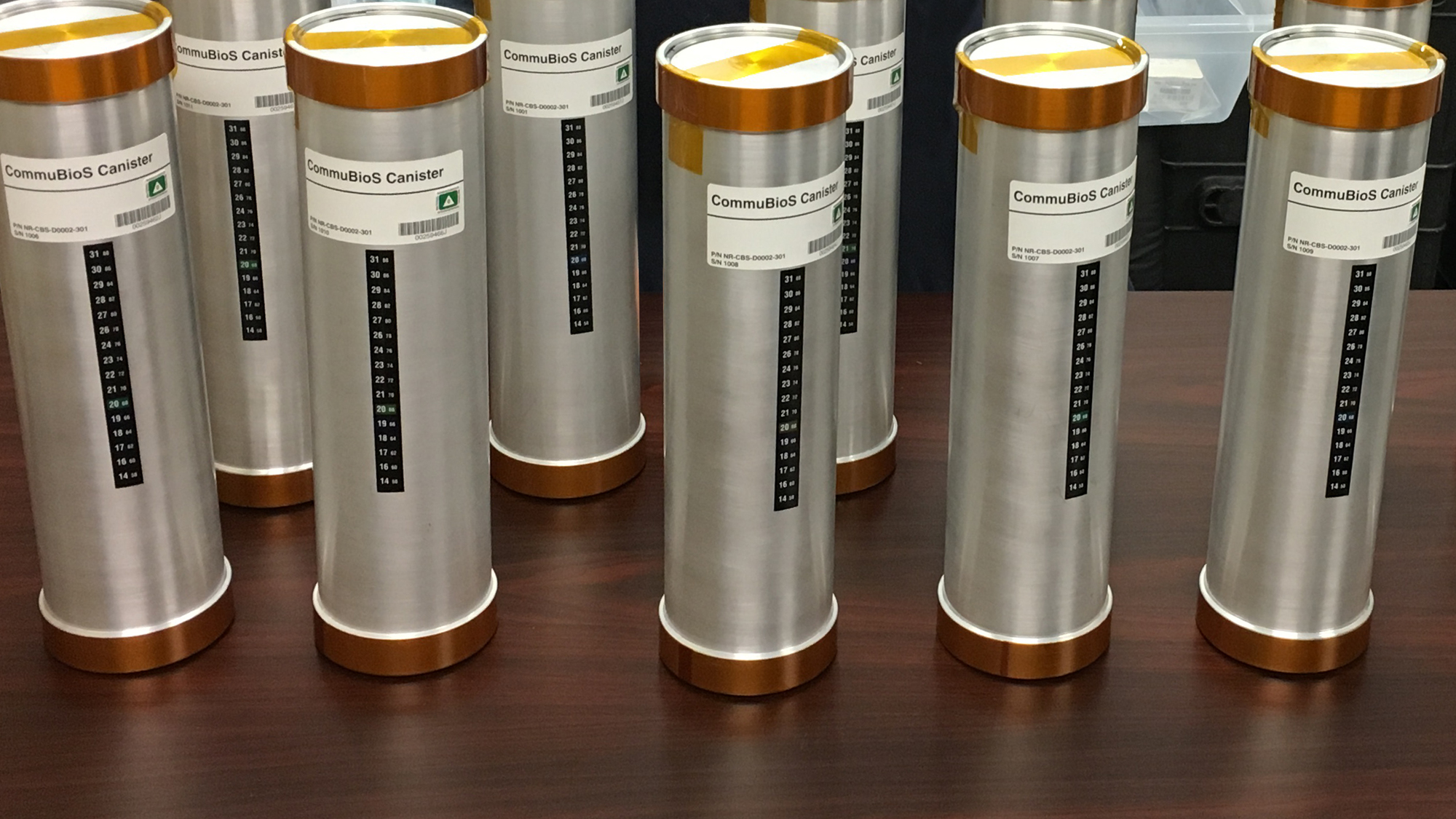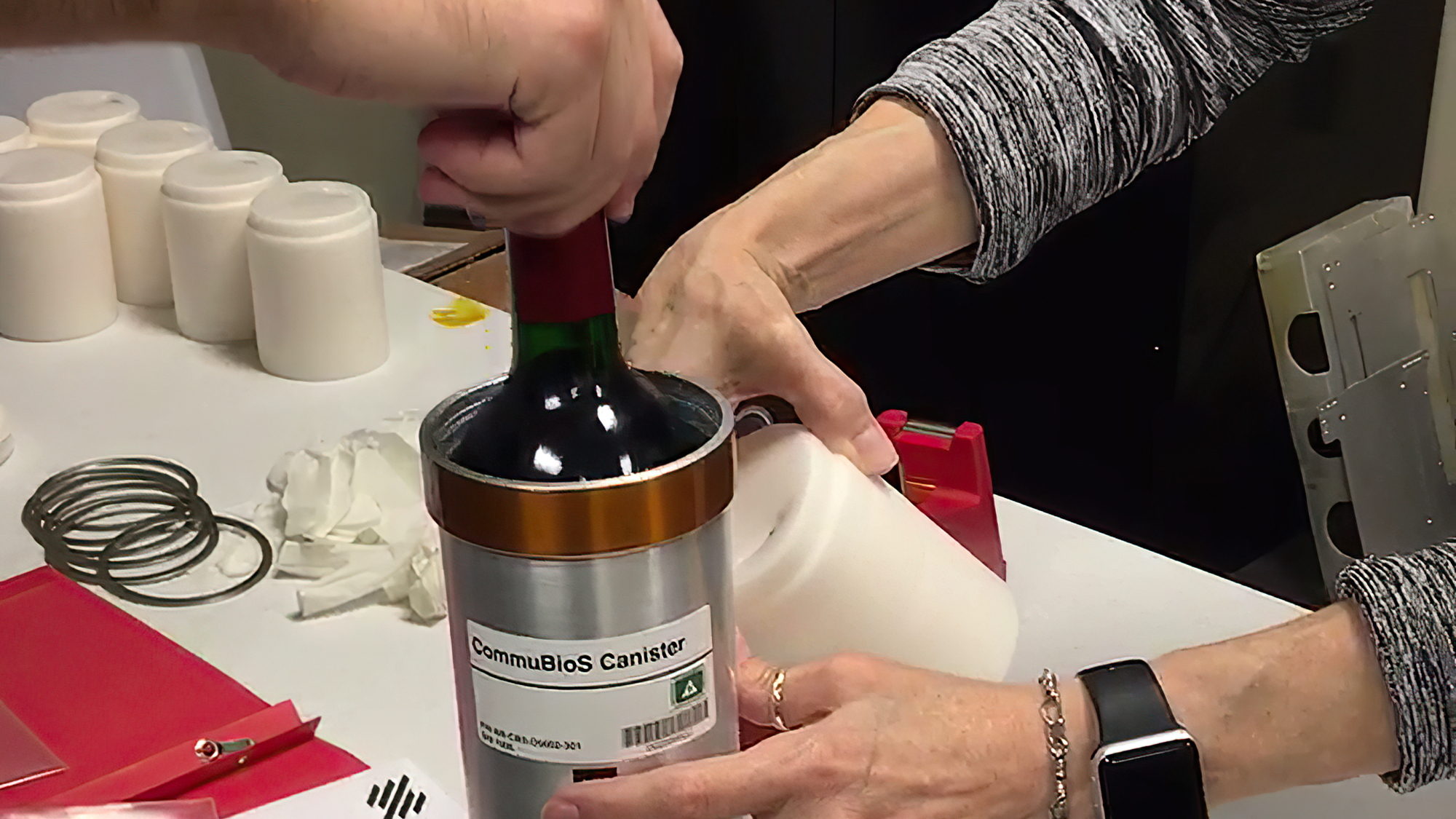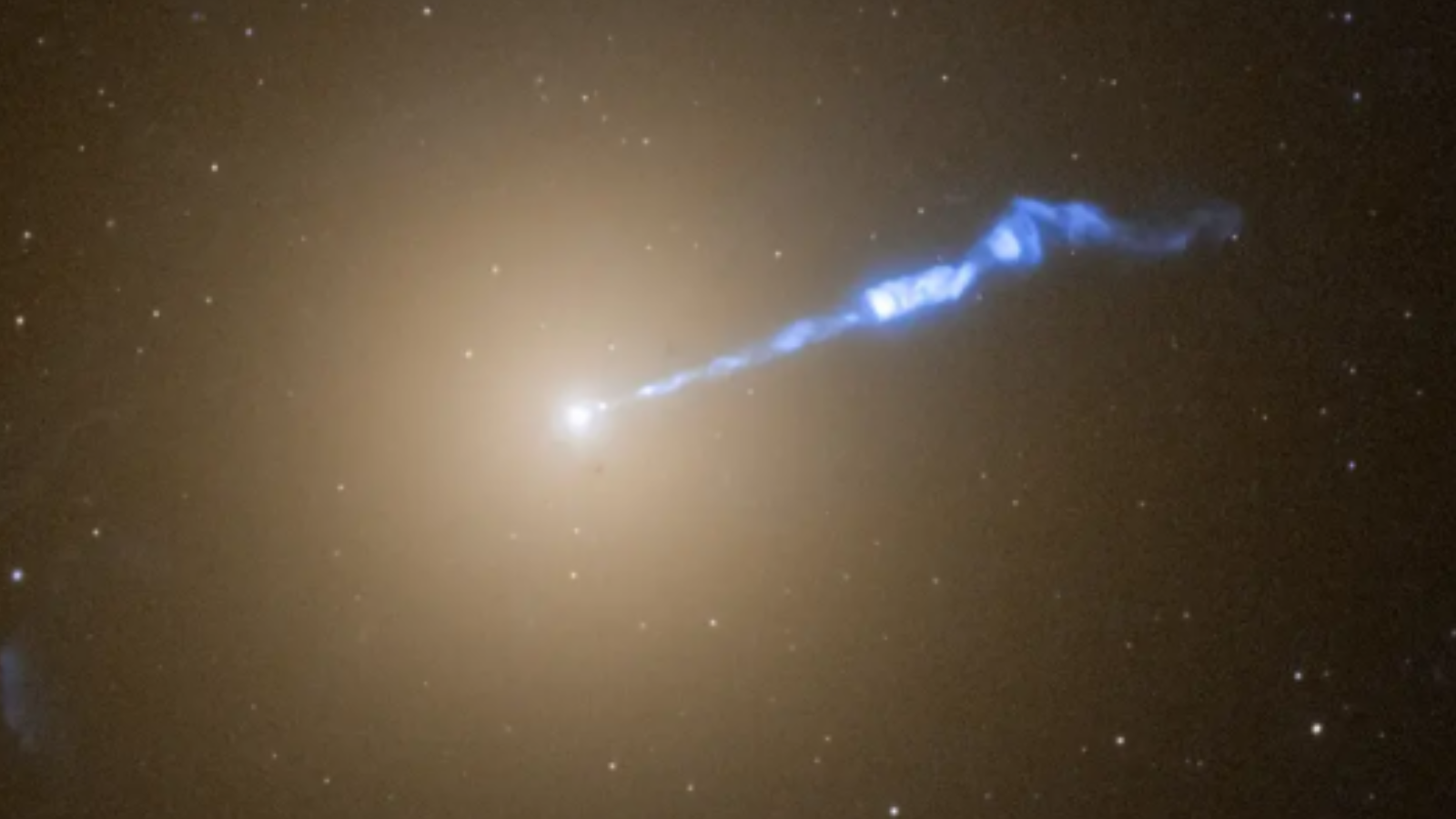Red wine in space may age faster than on Earth, study finds
Now that's some vintage...

Red wine stored at the International Space Station for more than a year tasted a bit different than its terrestrial counterparts and, surprisingly, aged faster, too, a new study finds.
Researchers shipped 12 bottles of Bordeaux wine to the space station on a Northrop Grumman Cygnus cargo spacecraft in November 2019 — not to go with the astronauts' meals, but to study how microgravity, or weightlessness, affects wine as it ages. The wine remained in a sealed canister at the orbiting laboratory for 438 days and 19 hours before returning to Earth on a SpaceX Dragon cargo spacecraft in January.
Compared to a bottle of the same wine that aged for the same amount of time on Earth, the wine that aged at the International Space Station "was really maybe one to two or even three years further evolved than you would expect from the one that had remained on Earth," wine writer Jane Anson, who participated in the taste test, told reporters in a press conference earlier this year.
Related: Astronauts may benefit from red wine in orbit
Anson was one of 12 panelists who participated in the taste test after the wine returned from space. Of those panelists, five (including Anson) were professional wine tasters. For the first part of the test, panelists were given three glasses of wine, not knowing which glasses contained the wine from space.
"At that point we're looking for aromatics and visuals, if we could see a difference," Anson said in the May 24 briefing. "We basically had to pick which of the three was different. And of those, I saw a difference in the evolution of the color of the wine in one of them. I didn't know which."
For the second part of the test, the panelists "did a straight comparative tasting of the two wines — both fantastic — and one of the main things to look at initially was, have these wines survived? Are they both good quality? And the answer to that would definitely be, yes," Anson said.
Breaking space news, the latest updates on rocket launches, skywatching events and more!
"Unanimously, the two wines were considered to be great wines, which means that despite the 14-month stay on the International Space Station, the 'space wine' was very well evaluated sensorially," Philippe Darriet, a researcher with the University of Bordeaux who organized the taste test, said in a statement.
"Differences were perceived concerning the color of the wines. Concerning aroma and taste components: the two wines were described with a rich vocabulary attesting to remarkable olfactory and gustatory complexity; sensory dimensions of sweetness, harmony and persistence were particularly noted," Darriet added.
The researchers plan to publish the results of the study in a scientific journal and only revealed a preliminary analysis of the taste and other sensory tests in the news conference.
Related: Wine on Mars? The world's oldest wine-making country wants to make it happen
The space wine was the first of six experiments that French startup Space Cargo Unlimited plans to fly for a research project called Mission WISE, which stands for "Vitis Vinum in Spatium Experimentia" (Latin for "grape wine in the distance experiment").
The second mission, called "Alpha," launched on Blue Origin's New Shepard in December 2019, to study the effect of microgravity on vine calluses (or grapevine shoots) on a short-duration mission. Then in March 2020, Mission Wise launched the "Canes" experiment with 320 vine plants to the space station on SpaceX's Dragon CRS-20 cargo mission, for a six-month stay at the orbiting lab. The next three experiments, scheduled to launch by the end of 2022, will focus on bacteria, yeast and fermentation processes.
"The journey we started six years ago to really leverage the space environments for the future of agriculture and viticulture," Nicolas Gaume, co-founder of Space Cargo Unlimited, said in the news conference. "Mission Wise is the first privately led comprehensive research program, aiming to find a solution for the future of agriculture thanks to space."
Gaume and his colleagues hope that studying wine and other foods in space could not only be useful for future crewed space missions, but it could also help prepare the world for the effects that climate change will have on agriculture, such as grapes.
"On the International Space Station, where we conduct our experiments, the Earth's environment is recreated as all. We have the same level of temperature, the same level of pressure, humidity, the same level of oxygen levels, everything but one parameter: gravity. And it matters," Gaume said. "When we remove that key component of life, everything living that is inside the International Space Station is really exposed to an immense stress, stress that is triggering evolutions and changes that we want to capture with Mission Wise to forge options for the future of our agriculture and of viticulture."
Darriet added in the news conference that he expects this work "could enlighten us on the evolution of sensory perception, or the pleasure of the sensory perception — which is very important, evidently — associated with also kinds of foods which could be preserved under conditions of weightlessness. And so, we are confident that this study should be able to give information, not on wine necessarily ... but also on other kinds of food products in the context of special missions."
Email Hanneke Weitering at hweitering@space.com or follow her on Twitter @hannekescience. Follow us on Twitter @Spacedotcom and on Facebook.

Hanneke Weitering is a multimedia journalist in the Pacific Northwest reporting on the future of aviation at FutureFlight.aero and Aviation International News and was previously the Editor for Spaceflight and Astronomy news here at Space.com. As an editor with over 10 years of experience in science journalism she has previously written for Scholastic Classroom Magazines, MedPage Today and The Joint Institute for Computational Sciences at Oak Ridge National Laboratory. After studying physics at the University of Tennessee in her hometown of Knoxville, she earned her graduate degree in Science, Health and Environmental Reporting (SHERP) from New York University. Hanneke joined the Space.com team in 2016 as a staff writer and producer, covering topics including spaceflight and astronomy. She currently lives in Seattle, home of the Space Needle, with her cat and two snakes. In her spare time, Hanneke enjoys exploring the Rocky Mountains, basking in nature and looking for dark skies to gaze at the cosmos.
